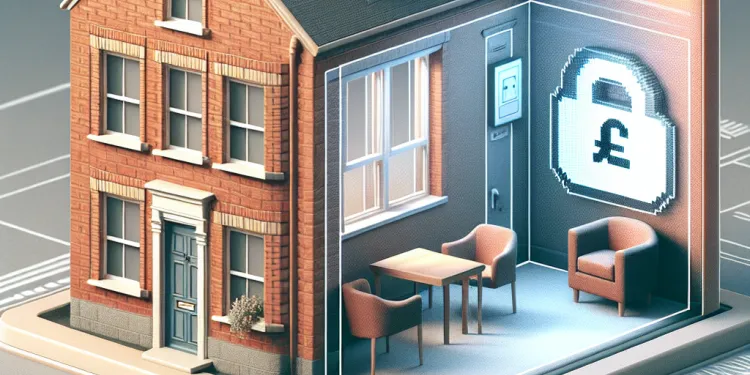
Find Help
More Items From Ergsy search
-
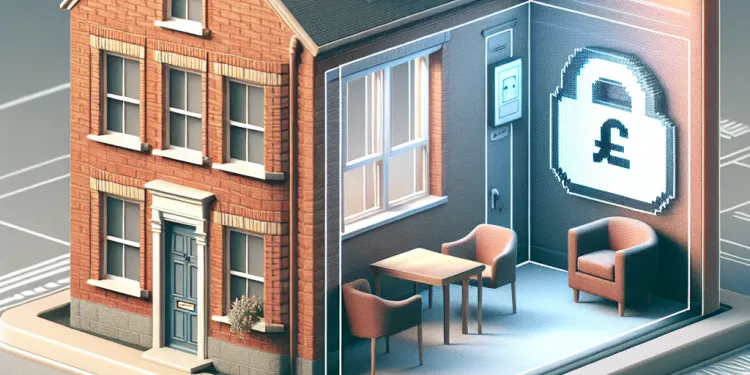
Can a landlord lock me out or remove my belongings to evict me?
Relevance: 100%
-
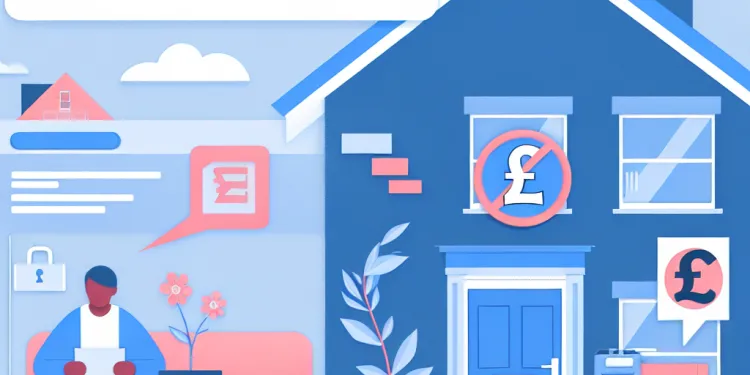
What can I do if my landlord wants to evict me?
Relevance: 60%
-

Can my landlord evict me without providing a reason?
Relevance: 53%
-
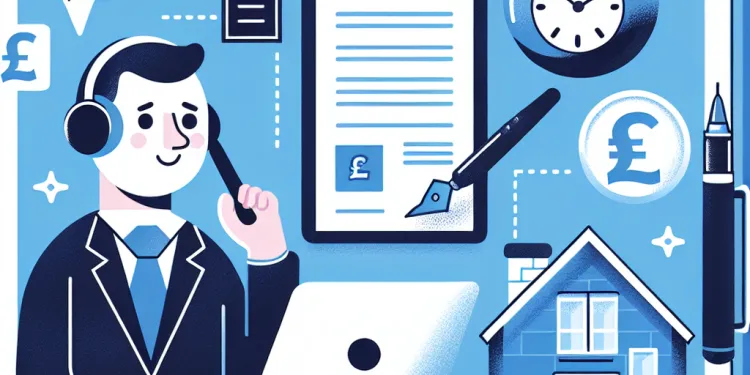
Can I negotiate with my landlord to avoid eviction?
Relevance: 52%
-
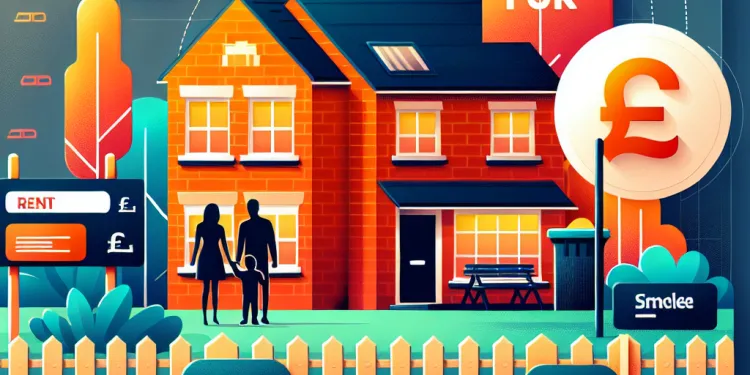
Can a landlord evict me for complaining about property conditions?
Relevance: 50%
-

What should I do if I receive an eviction notice from my landlord?
Relevance: 50%
-

What are my rights during the eviction process?
Relevance: 49%
-
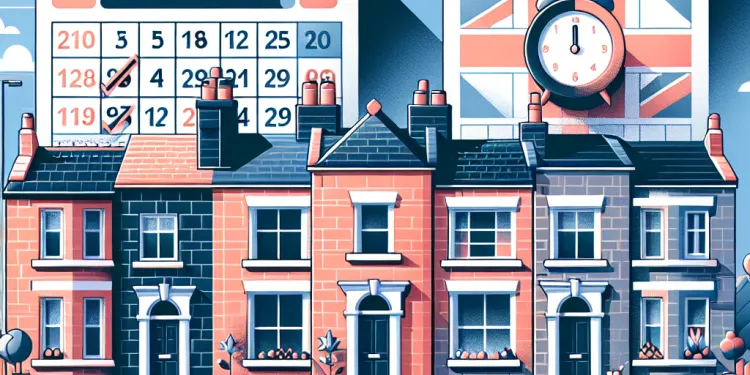
What happens if I stay beyond the eviction deadline?
Relevance: 47%
-

What are the consequences of having an eviction on my record?
Relevance: 45%
-

Can eviction affect my credit score?
Relevance: 44%
-
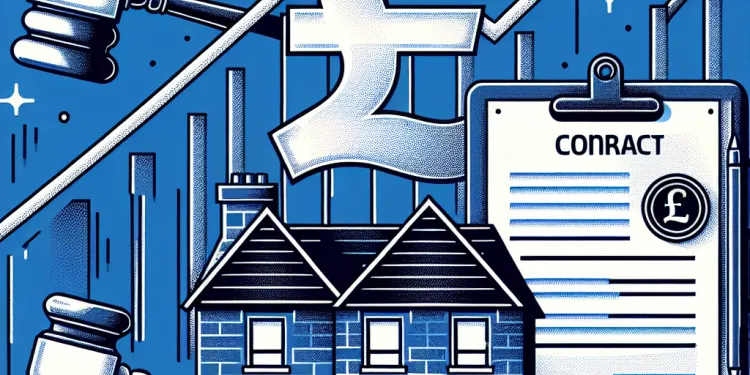
Are there changes to the eviction process?
Relevance: 42%
-
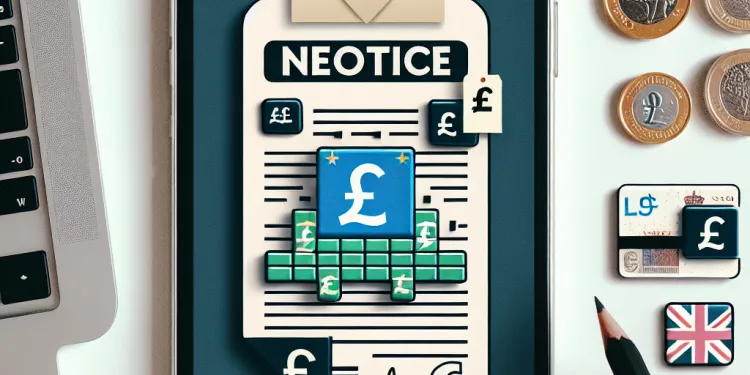
Has the notice period for eviction changed?
Relevance: 41%
-
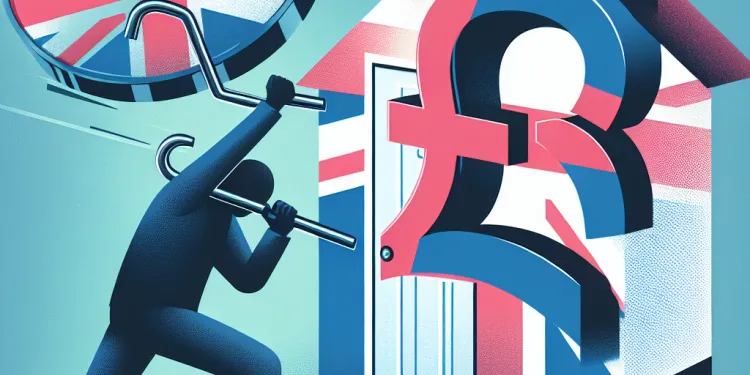
How can I contest or challenge the eviction?
Relevance: 41%
-
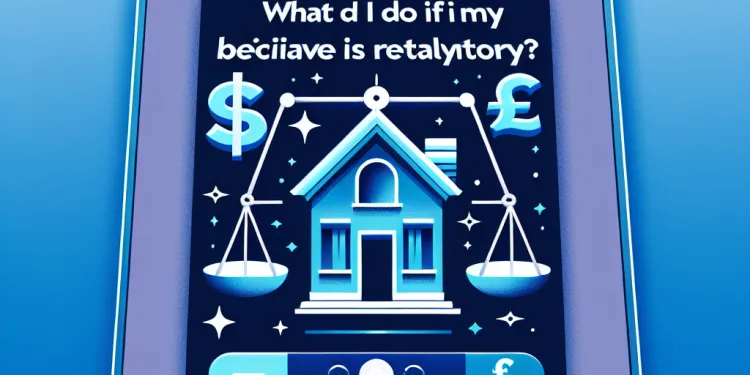
What can I do if I believe my eviction is retaliatory?
Relevance: 40%
-

How long do I have to move out after receiving an eviction notice?
Relevance: 39%
-

Does filing for bankruptcy stop an eviction?
Relevance: 39%
-

Can I stop an eviction if I catch up on rent payments?
Relevance: 39%
-

How can I prepare for an eviction court hearing?
Relevance: 38%
-
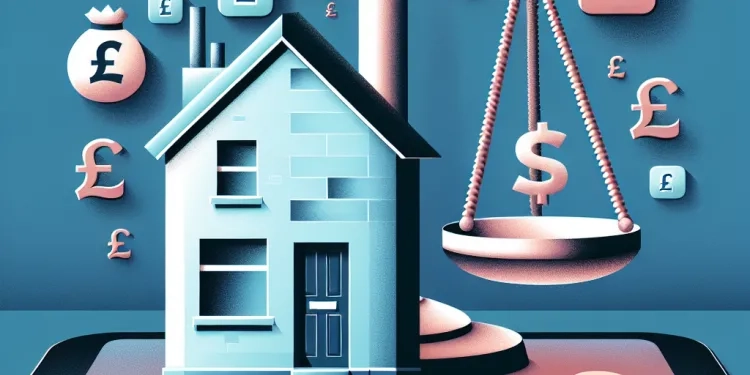
Can I appeal a court's eviction decision?
Relevance: 37%
-

Is mediation an option to resolve eviction disputes?
Relevance: 36%
-
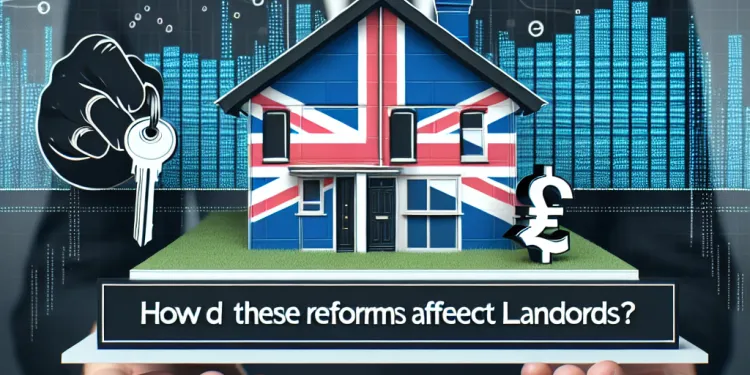
How do these reforms affect landlords?
Relevance: 36%
-

Are there any government programs that can help me avoid eviction?
Relevance: 34%
-

What should I do if I can't afford a lawyer for the eviction process?
Relevance: 33%
-

Landlord Licensing Laws Under Review as Tenants Call for Stronger Protections
Relevance: 31%
-

How are disputes between landlords and tenants handled?
Relevance: 31%
-

How do I find alternative housing quickly if evicted?
Relevance: 30%
-

Can inmates have personal belongings?
Relevance: 29%
-

How will the cuts impact landlords?
Relevance: 28%
-

How are landlord-tenant issues resolved in property litigation?
Relevance: 26%
-
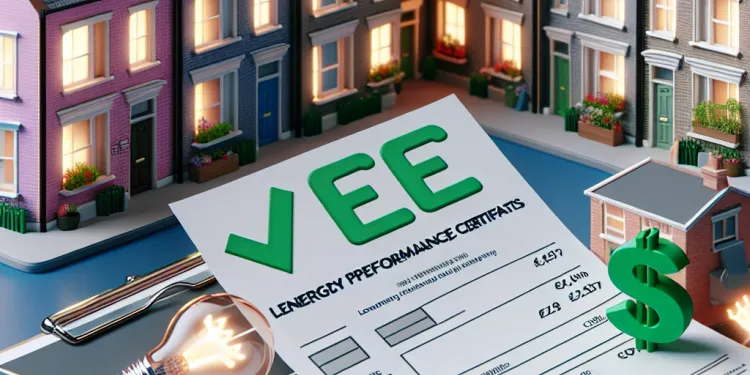
Are landlords required to provide energy performance certificates?
Relevance: 26%
-

Ganglion Cyst Removal
Relevance: 25%
-

What are the new Tenancy Law Reforms in the UK in 2025?
Relevance: 24%
-

What new protections are included for tenants?
Relevance: 24%
-

What can tenants do if they are affected by the cuts?
Relevance: 23%
-

How to remove your hearing aid
Relevance: 23%
-

5 Broker Exclusive Buy to Let Mortgage Lenders you need to know about as a Landlord
Relevance: 23%
-

Will a facelift remove all my wrinkles?
Relevance: 22%
-

Watchdog Raises Concerns Over Commercial Landlord Regulations
Relevance: 22%
-

How can a director be removed if a dispute cannot be resolved?
Relevance: 21%
-

How does the reform impact renting costs?
Relevance: 21%
Introduction
In the UK, the process of eviction is governed by specific laws designed to protect the rights of both tenants and landlords. A common concern among tenants facing eviction is whether their landlord can lock them out of their home or remove their belongings without permission. Understanding the legal framework surrounding evictions can help tenants know their rights and landlords understand their obligations.
Legal Eviction Procedures
In the UK, a landlord must follow a legal process to evict a tenant. This process typically involves serving the tenant with a valid notice and obtaining a possession order from the court if the tenant does not leave by the specified date. A landlord cannot simply change the locks or remove a tenant's belongings as a means of eviction. Doing so would be considered an illegal eviction.
Illegal Eviction
Illegal eviction occurs when a landlord forces a tenant to leave their property without following the proper legal procedures. This includes actions like changing the locks, physically removing the tenant, or taking the tenant’s belongings. Illegal eviction is a criminal offense in the UK, and tenants subjected to such actions can report their landlord to the local council or police. Legal action can result in fines or imprisonment for the landlord.
Tenant Rights
Tenants have the right to live in their home undisturbed unless a court order has been issued to evict them. If a landlord wishes to evict a tenant legally, they must issue either a Section 8 or a Section 21 notice, depending on the circumstances. A Section 8 notice is used when a tenant has breached the terms of the tenancy, while a Section 21 notice is a no-fault eviction notice that does not require the tenant to have done anything wrong.
Protection from Unlawful Eviction
If tenants believe they are being illegally evicted, they should contact their local council’s housing department or seek advice from an organization like Shelter or Citizens Advice. These organizations can offer support and guidance on how to handle the situation. Legal aid might also be available for those who qualify, helping tenants challenge their eviction in court.
Conclusion
In conclusion, landlords in the UK cannot lock tenants out or remove their belongings as a method of eviction. Doing so is not only illegal but can also result in severe penalties for the landlord. Tenants have significant rights and protections under UK law, and understanding these rights can ensure they are not unlawfully evicted. It is crucial for both landlords and tenants to be aware of and adhere to the legal processes surrounding eviction.
Introduction
In the UK, there are special rules about eviction. These rules help both people who rent homes (tenants) and people who own homes (landlords). People who rent homes might worry about being locked out or having their things taken without a say. Knowing the eviction rules can help tenants understand their rights and landlords know what they must do.
Legal Eviction Procedures
Landlords in the UK must follow the law to make a tenant leave. They have to give the tenant a notice and may need to get permission from the court if the tenant doesn’t leave by a certain date. Landlords can’t just change the locks or take a tenant's things to make them go. If they do, it's against the law.
Illegal Eviction
An illegal eviction is when a landlord makes a tenant leave without following the right steps. This includes changing the locks, forcing the tenant out, or taking their things. Illegal evictions are crimes in the UK. Tenants can tell the local council or police if this happens. Landlords who do this might have to pay money or could even go to jail.
Tenant Rights
Tenants can stay in their home peacefully unless a court says they have to leave. If a landlord wants to evict someone legally, they must give a Section 8 or a Section 21 notice. A Section 8 notice is for when tenants break rules. A Section 21 notice is for when tenants haven't done anything wrong, but the landlord still wants them to leave.
Protection from Unlawful Eviction
If tenants think they are being evicted illegally, they should talk to their local council’s housing department. They can also get help from groups like Shelter or Citizens Advice. These groups can tell tenants what to do next. Some tenants might get free legal help to fight their eviction in court.
Conclusion
In short, landlords in the UK cannot lock tenants out or take their things to make them leave. This is illegal and can lead to serious trouble for landlords. Tenants have strong rights under UK law. Knowing these rights helps tenants avoid illegal evictions. It is important for both landlords and tenants to follow the legal eviction process.
Frequently Asked Questions
Can a landlord lock me out to evict me?
No, a landlord cannot legally lock you out to force an eviction.
Is it legal for a landlord to remove my belongings during an eviction?
No, a landlord cannot legally remove your belongings to evict you.
What should I do if my landlord illegally locks me out?
Contact local authorities or a legal aid service to report the illegal eviction.
Can a landlord change the locks without notifying me?
No, changing the locks without proper legal procedure is illegal.
What legal actions can a landlord take to evict a tenant?
A landlord must file an eviction lawsuit and obtain a court order.
What is a self-help eviction?
A self-help eviction involves illegal actions by a landlord, like changing locks or removing belongings without a court order.
How can I prevent illegal eviction by my landlord?
Know your rights, communicate with your landlord, and seek legal advice if needed.
What are my rights if my landlord locks me out?
You have the right to regain access and may seek legal assistance or file a complaint.
Can my landlord evict me without a court order?
No, an eviction requires a court order following a legal process.
What if my landlord threatens to lock me out?
Document the threats and contact local authorities or a lawyer.
Is removing a tenant's property part of the legal eviction process?
No, removing property without a court order is illegal.
What constitutes illegal eviction by a landlord?
Actions like locking out, removing belongings, or shutting off utilities without a court order.
Can utilities be shut off by the landlord as a form of eviction?
No, shutting off utilities is considered an illegal eviction tactic.
What should I do if my belongings are removed by my landlord?
Seek immediate legal help to recover your belongings and address the illegal eviction.
How can a landlord legally remove a tenant?
Through formal eviction proceedings in court with a judge's order.
What protections do renters have against illegal eviction?
Renters are protected by landlord-tenant laws that require formal eviction processes.
Are there penalties for landlords who engage in illegal evictions?
Yes, landlords may face legal penalties, fines, or be liable for damages.
What recourse do I have against an illegal lockout?
Contact a lawyer, legal aid, or local housing authority to file a complaint.
Can my landlord threaten physical force for eviction?
No, using or threatening force is illegal and should be reported to authorities.
Is mediation an option before eviction proceedings?
Yes, consider mediation to resolve disputes before facing formal eviction.
Can my landlord lock me out of my home?
A landlord is not allowed to lock you out to make you leave.
Can my landlord take my things if they want me to leave?
If your landlord asks you to leave, they should not take your things without permission. It is important to know your rights. You can ask someone you trust to help you, like a family member or a friend.
You might also find it helpful to talk to a lawyer or ask for advice from a local housing help center.
No, your landlord cannot take your things to make you leave.
What to Do if Your Landlord Locks You Out
If your landlord locks you out and it is not allowed:
- Stay calm. Take deep breaths.
- Call the police. Tell them what happened.
- Ask for a trusted friend or family member to help you.
- Keep notes of what happens. Write down dates and times.
- Contact a lawyer or local tenant service for advice.
Helpful tools:
- Use a phone to call for help.
- Use a notebook to write down details.
Talk to local council or legal help if you are forced to leave your home when you shouldn't be.
Can my landlord change the locks without telling me?
Does your landlord want to change the locks on your door? They should tell you first. This means they cannot just change the locks without saying anything.
If you are worried, you can:
- Talk to your landlord and ask them before they change the locks.
- Write down what you both agree on.
No, you can't change the locks without following the law. It is against the rules.
How can a landlord ask a tenant to leave?
A landlord is the person who owns a home or apartment that someone else lives in.
If a landlord wants a tenant (the person living there) to leave, they have to follow the law.
Here’s how a landlord can do it:
- Give a Notice: The landlord writes a letter to tell the tenant they have to leave by a certain date.
- Talk to a Judge: If the tenant doesn’t leave, the landlord can ask a judge for help.
- Court Order: The judge can give the landlord a paper that says the tenant must leave.
Here are some tools or ways to help:
- Ask for Help: Talk to someone you trust if you don’t understand.
- Use Picture Cards: Try cards with pictures to understand better.
- Get Legal Advice: Talk to a legal helper if you have questions.
A landlord has to ask a court to make a person leave their home.
What is a self-help eviction?
A self-help eviction is when a landlord tries to make someone move out without using the law. This can happen if a landlord changes the locks or cuts off the water or electricity.
If you are worried about a self-help eviction, talk to an adult you trust. You can also speak to someone who knows the law, like a lawyer, for help.
A self-help eviction is when a landlord does something against the rules. They might change the locks or take away your things without asking a judge first.
What can I do if my landlord tries to make me leave my home without asking properly?
Learn what your rights are, talk to your landlord, and get help from a lawyer if you need to.
What can I do if my landlord locks me out?
If your landlord locks you out, you have the right to go back inside your home. It is not okay for your landlord to lock you out.
Here’s what you can do:
- Stay calm and don’t get angry.
- Tell your landlord that you need to go back inside.
- If your landlord doesn’t let you in, ask for help:
- Call a friend or family member.
- Talk to someone who can give you legal advice.
- You can also call the police for help.
Remember, you have the right to stay in your home.
You have the right to get back in. You can ask a lawyer for help or tell someone in charge.
Can my landlord make me leave without asking a court?
No, someone has to go to court to get permission to make you leave your home.
What if my landlord says they will lock me out?
If your landlord says they will lock you out, don’t worry. You have rights.
Here’s what you can do:
1. Stay calm. It’s important to stay calm and not to panic.
2. Talk to someone who can help, like a trusted friend or family member.
3. Contact someone who knows the law. They can give you advice. You can call a helpline or talk to a legal advisor.
4. Keep notes. Write down what your landlord said and when they said it.
Remember, your home is your safe place. The landlord cannot just lock you out without following the law.
Write down any bad things that happen and tell the police or a lawyer.
Can a landlord take a tenant's things when evicting them?
No, you can't take things away from someone else's property without a court saying it's okay.
What is illegal eviction by a landlord?
Illegal eviction means a landlord tries to make you leave your home without following the law. This can happen if:
- Your landlord changes the locks without telling you.
- Your landlord tells you to leave without giving you a proper notice.
- Your landlord stops you from getting into your home.
If you think this is happening to you, talk to someone who can help, like a housing advisor or a legal service. They can give you advice and support. Using pictures or simple diagrams can also help you understand your rights.
If you don't have a court order, don't:
- Lock someone out.
- Take away their things.
- Turn off their water, gas, or electricity.
Can the landlord turn off the water or electricity to make you leave?
No, turning off things like water or electricity to make someone leave their home is not allowed. It is against the rules.
What if my landlord takes my things?
If your landlord takes your things, here is what you can do:
- Stay calm and talk to your landlord first. Ask them why they took your things.
- Check your rent agreement. It has rules about your home and your things.
- If you need help, ask a friend, family, or support worker. They can give advice.
- You can also call a lawyer for help if it is serious.
Using simple words can help everyone understand. Drawing or writing things down can also be a big help.
Get help from a lawyer right away to get your things back and talk about the eviction.
How can a landlord legally remove a tenant?
If a landlord wants a tenant to leave, they must follow the law.
Here is how it works:
1. Give Notice: The landlord has to tell the tenant in writing they want them to leave. This is called a "notice."
2. Follow the Rules: There are rules about how much time the landlord must give the tenant. It can be different in each place.
3. Go to Court: If the tenant doesn’t leave, the landlord might need to go to court to ask a judge for help.
4. Wait for Court Decision: The landlord must wait for the judge’s decision.
Helpful Tips: It can help to talk to a legal expert. Using a basic calendar can help keep track of all the dates.
You can be told to leave your home by a judge in court. This is called an eviction.
What can renters do if they are told to leave their home unfairly?
People who rent a home have rules that keep them safe. These rules say that a landlord must follow certain steps to make someone move out.
Can landlords get in trouble for making people move out in the wrong way?
Yes, landlords can get into trouble. They might have to pay money if they break the rules.
What can I do if I am locked out of my home illegally?
Talk to a lawyer, a legal aid person, or someone at the local housing office to get help with your problem. They can help you make a complaint.
Is it okay for my landlord to use force to make me leave?
No, your landlord cannot use force to make you leave your home.
If you feel scared or unsafe, you can:
- Talk to someone you trust.
- Call the police for help.
- Get advice from a legal helper.
No, it is against the law to use force or to say you will use force. If this happens, tell the police or a trusted adult.
Can we try talking things over before someone is made to leave their home?
Yes, try talking things out with a mediator to solve problems before getting officially evicted.
Useful Links
This website offers general information and is not a substitute for professional advice.
Always seek guidance from qualified professionals.
If you have any medical concerns or need urgent help, contact a healthcare professional or emergency services immediately.
Some of this content was generated with AI assistance. We’ve done our best to keep it accurate, helpful, and human-friendly.
- Ergsy carfully checks the information in the videos we provide here.
- Videos shown by Youtube after a video has completed, have NOT been reviewed by ERGSY.
- To view, click the arrow in centre of video.
- Most of the videos you find here will have subtitles and/or closed captions available.
- You may need to turn these on, and choose your preferred language.
- Go to the video you'd like to watch.
- If closed captions (CC) are available, settings will be visible on the bottom right of the video player.
- To turn on Captions, click settings .
- To turn off Captions, click settings again.
More Items From Ergsy search
-

Can a landlord lock me out or remove my belongings to evict me?
Relevance: 100%
-

What can I do if my landlord wants to evict me?
Relevance: 60%
-

Can my landlord evict me without providing a reason?
Relevance: 53%
-

Can I negotiate with my landlord to avoid eviction?
Relevance: 52%
-

Can a landlord evict me for complaining about property conditions?
Relevance: 50%
-

What should I do if I receive an eviction notice from my landlord?
Relevance: 50%
-

What are my rights during the eviction process?
Relevance: 49%
-

What happens if I stay beyond the eviction deadline?
Relevance: 47%
-

What are the consequences of having an eviction on my record?
Relevance: 45%
-

Can eviction affect my credit score?
Relevance: 44%
-

Are there changes to the eviction process?
Relevance: 42%
-

Has the notice period for eviction changed?
Relevance: 41%
-

How can I contest or challenge the eviction?
Relevance: 41%
-

What can I do if I believe my eviction is retaliatory?
Relevance: 40%
-

How long do I have to move out after receiving an eviction notice?
Relevance: 39%
-

Does filing for bankruptcy stop an eviction?
Relevance: 39%
-

Can I stop an eviction if I catch up on rent payments?
Relevance: 39%
-

How can I prepare for an eviction court hearing?
Relevance: 38%
-

Can I appeal a court's eviction decision?
Relevance: 37%
-

Is mediation an option to resolve eviction disputes?
Relevance: 36%
-

How do these reforms affect landlords?
Relevance: 36%
-

Are there any government programs that can help me avoid eviction?
Relevance: 34%
-

What should I do if I can't afford a lawyer for the eviction process?
Relevance: 33%
-

Landlord Licensing Laws Under Review as Tenants Call for Stronger Protections
Relevance: 31%
-

How are disputes between landlords and tenants handled?
Relevance: 31%
-

How do I find alternative housing quickly if evicted?
Relevance: 30%
-

Can inmates have personal belongings?
Relevance: 29%
-

How will the cuts impact landlords?
Relevance: 28%
-

How are landlord-tenant issues resolved in property litigation?
Relevance: 26%
-

Are landlords required to provide energy performance certificates?
Relevance: 26%
-

Ganglion Cyst Removal
Relevance: 25%
-

What are the new Tenancy Law Reforms in the UK in 2025?
Relevance: 24%
-

What new protections are included for tenants?
Relevance: 24%
-

What can tenants do if they are affected by the cuts?
Relevance: 23%
-

How to remove your hearing aid
Relevance: 23%
-

5 Broker Exclusive Buy to Let Mortgage Lenders you need to know about as a Landlord
Relevance: 23%
-

Will a facelift remove all my wrinkles?
Relevance: 22%
-

Watchdog Raises Concerns Over Commercial Landlord Regulations
Relevance: 22%
-

How can a director be removed if a dispute cannot be resolved?
Relevance: 21%
-

How does the reform impact renting costs?
Relevance: 21%


